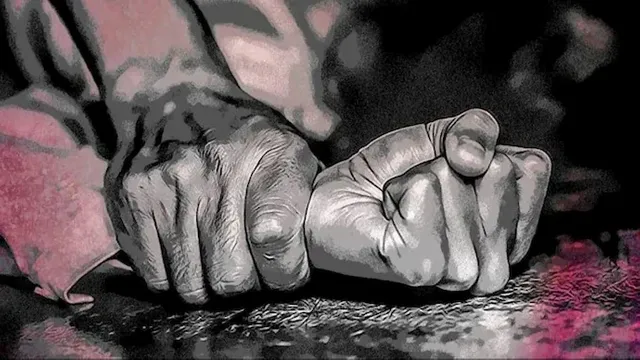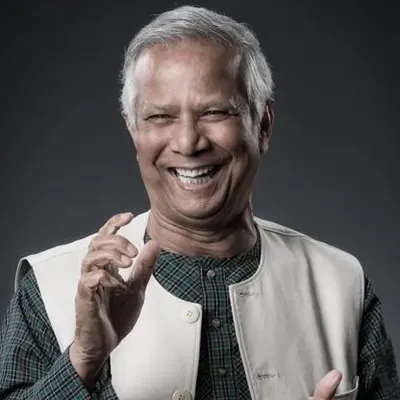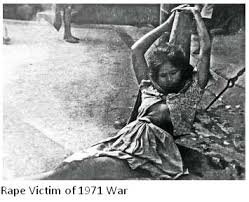
It seems that rape has become an alarmingly common phenomenon in Bangladesh under the Yunus regime. The prevalence of such heinous crimes has reached a point where it wouldn’t be an exaggeration to describe this as a full-blown "rape culture." In just 72 hours, 10 separate rape incidents have shaken the entire country. Bangladeshi netizens are at a loss for words, and these horrifying events have left deep, indelible scars on the hearts of those whose consciences remain unshaken.
At least 10 reported cases of rape have surfaced, rattling Bangladesh to its core—only the Lord knows how many remain unreported. However, two of these incidents have delivered a devastating blow to the very foundation of people's faith in the government’s duty to protect its citizens.
One of the most appalling incidents involved a Hindu woman who was gang-raped throughout the night by dacoits inside a moving bus, packed with over 50 passengers. Her husband and the other passengers were held hostage, helplessly witnessing the unimaginable horror unfold.

According to a BBC Bangla report, the Dhaka-Rajshahi highway robbery was far more than just a heist—it was a three-and-a-half-hour-long reign of terror. [Read more: https://www.bbc.com/bengali/articles/cjd35n58y7jo ]
Passengers who survived the nightmare recalled that although the bus was already packed, the driver and his accomplices picked up seven or eight more men along the way. Soon after, one of them took control of the steering wheel, while the others held knives to the passengers' throats and turned off the bus lights.
After robbing the passengers of all their valuables, their lust for violence escalated. They turned their attention to a Hindu woman.
After confirming her religious identity, a skinny-looking robber dragged her to the back of the bus. When her husband tried to intervene, he was beaten to a pulp.
The other passengers, held at knifepoint, could do nothing but listen to the woman's horrific screams.
"We could only hear her scream, but we couldn't help her. We were kept as hostages at knifepoint. We were helpless ourselves," one of the passengers recalled.
But the horror doesn’t end there. There are clear indications that the bus driver, the supervisor, and the helper were complicit in the crime. And yet—they were granted instant bail. As if they had already predicted it. As if it were an anticipatory bail.
The second case is equally disturbing—a 9-year-old child was raped by a 55-year-old man for the so-called “crime” of picking flowers to pay tribute to the language martyrs on February 21st, the day observed as International Mother Language Day. Yes, you read that right. A child was brutalized simply for picking flowers. I can't describe this horrific tale any further. I recommend you read the report. Here is the link to the news. [news link : https://www.kalerkantho.com/online/country-news/2025/02/21/1483636 ]
And what was the response from Yunus and his advisors? Silence.

Apparently, the so-called Nobel Peace Prize winner has nothing to say about such horrifying incidents. As of this writing, only the 55-year-old predator has been arrested—and that too, only because he was caught red-handed by the people. And as you already know, the perpetrators of the bus incident were granted instant bail.
This begs the question: Is justice even a priority under this regime, or have criminals been given free rein to terrorize the nation?
What is the most heinous crime of all? I have every reason to believe that at least 80% of people with a sane mind and clarity of thought would answer: rape.
Being raped is perhaps the most distressing, horrendous, and demeaning experience anyone could endure. It shatters a person’s sense of self, leaving them drowning in self-loathing, self-blame, and rage. The psychological scars often lead to post-traumatic stress disorder (PTSD), a torment that lingers long after the physical wounds have healed.
I struggle to think of another crime more monstrous, more unforgivable than rape.
Yet, rape happens. Rape has been used as a weapon of war and oppression throughout history because it serves multiple purposes: it instills fear, destroys social structures, humiliates opponents, and asserts dominance. This horrific practice has been employed by various regimes, armies, and militant groups as a means of control and psychological warfare.
The mass rapes in Nanking, rapes during the Partition of India, rapes in the Bosnian War, during the Rwandan genocide, and the sexual enslavement of Yazidi minorities by ISIS are just a few horrifying examples from history.
But we don’t even have to look that far. It happened right here, on our own soil, in 1971.
During the Bangladesh Liberation War, the Pakistan Army and its collaborators (Razakars, Al-Badr, Al-Shams) unleashed a campaign of mass rape, targeting 200,000 to 400,000 Bengali women. Their aim was not just to violate bodies but to break the spirit of an entire nation.

Is history repeating itself? Well, should we even be surprised? Because the perpetrators remain the same.
The same old Razakars, Al-Badr, and Al-Shams—the infamous collaborators of 1971—now have their modern-day counterparts in Islami Chhatra Shibir (the student wing of Jamaat-e-Islami), Hizb ut-Tahrir, Ansar Al-Islam, Jamaat-ul-Mujahideen Bangladesh (JMB), and various other Islamist extremist groups.
These groups, driven by the same ideology of terror and oppression, continue to operate, rebranding themselves under different names but carrying out the same atrocities, the same brutality with the same modus operandi.
The question is no longer "if" history is repeating itself—but rather, how long will we allow it to happen?
The relentless price hikes have made even the most basic necessities unaffordable. Unemployment is soaring, with over 500 factories shutting down across the country, leaving thousands without livelihoods. Educational institutions—once the pillars of progress—have become political battlegrounds, where everything thrives except education.
The streets tell a story of arson, vandalism, and lawlessness. According to government reports, 313 people are murdered each month—and that’s just the official count. The real numbers? We may never know.
Meanwhile, systematic attacks on the opposition continue with impunity. State-sponsored terrorism tightens its grip. And now? The brutal rape of innocent civilians.
Is this what we have become? Do human lives hold no value in this so-called Islamic state?
How long can this continue? How long will this reign of terror last?
And perhaps the most haunting question of all—will the world once again turn a blind eye while innocent Bangladeshis suffer?